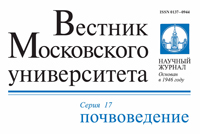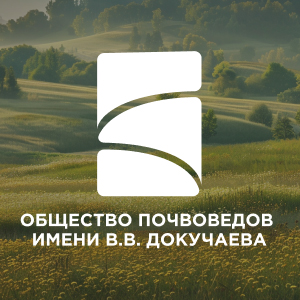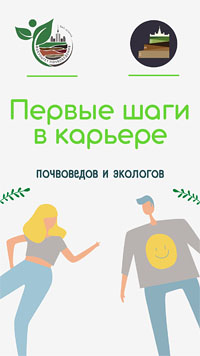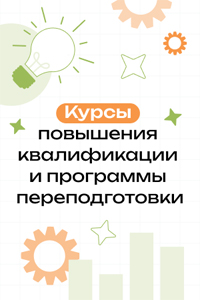|
Main topics in accordance with the 17 Sustainable Development Goals of the United Nations:
In accordance with the modern views on plant nutrition, fertilizers can increase plant productivity only in cooperation with the soil microbiome, and soil organic matter that underlies sustainable systems and serves a reliable tool for plant-soil-microorganisms relationships. These two the most important components of the agroecosystem are in the focus of our research. The crop research priorities are focused on understanding the ways of the hormonal regulation of plant development – a subtle tool targeted at the most pressing challenges of modern agriculture, which opens up wide prospects and at the same time requires a fine handling skills of metabolic engineering.
Along with its traditional tasks of optimal nutrition for food and technical crops, agrochemistry is designed to solve the issues of functioning of urban agroecosystems, starting from classic historical gardens, parks and green constructions – the most important component of a full human life in the city. Thus, students get the opportunity to study the questions related with horticulture, gardening and landscape architecture with emphasize on sustainability of man-made landscapes to search innovative ways of growing plants and creating unique phytocosms in the very center of the metropolis. Agrochemistry can effectively cope with the environment pollution by accelerating the cycle of nutrients and the transformation of biogenic elements and xenobiotics, and in this case interlinking essential components of the biosphere. Our department is actively developing methods of bioassay to evaluate the state of soils polluted as a result of oil spills, application of organic waste, deicing agents and heavy metal contamination.
Bringing together agrochemistry and computational science expertise, the resulting data are analysed and interpreted with new approaches to assess the heterogeneity of soil cover and the dynamics of agroecosystems based on geostatistics and dynamic spatially distributed models and data from long-term field experiments with fertilizers.
The department has been publishing its own scientific and theoretical journal "Agrochemistry and Ecology Problems" since 2010 in paper and electronic versions. The journal promotes the ideas and discoveries of M.Sc. and Ph.D. scientists and approbation of new approaches and research methods in the field of agrochemistry.
Selected Bachelor's degree courses (In Russian):
Selected Master's degree courses (In Russian)
Contacts and main research areas: Arzamazova A.V. Consequences of technogenic contamination of the territories and assessment of the polluting components toxicity by the level of biological activity of the soil. Адрес электронной почты защищен от спам-ботов. Для просмотра адреса в вашем браузере должен быть включен Javascript. Bolysheva T.N. Application of mineral fertilizers for ornamental plants and lawns.Адрес электронной почты защищен от спам-ботов. Для просмотра адреса в вашем браузере должен быть включен Javascript.
Verkhovtseva N.V. Communities of microorganisms in the agroecosystems when using different types of organic and mineral fertilizers. Адрес электронной почты защищен от спам-ботов. Для просмотра адреса в вашем браузере должен быть включен Javascript. Voronina L.P. Agrochemical and ecotoxicological assessment of agrocenoses functioning under the application of new preparations and forms of fertilizers. Адрес электронной почты защищен от спам-ботов. Для просмотра адреса в вашем браузере должен быть включен Javascript. Gosse D.D. Ecological and agrochemical support of landscape design, landscaping and gardening in urban parks and green areas. Адрес электронной почты защищен от спам-ботов. Для просмотра адреса в вашем браузере должен быть включен Javascript. Egorov V.S. Optimal values of agrochemical parameters of soils for lawn growth; the role of new long-acting fertilizers, trace elements and humic biological products in improving the quality of lawn grasses. Адрес электронной почты защищен от спам-ботов. Для просмотра адреса в вашем браузере должен быть включен Javascript. Egorova E.V. Plant quality as soil fertility and plant biochemistry problem. Адрес электронной почты защищен от спам-ботов. Для просмотра адреса в вашем браузере должен быть включен Javascript. Morachevskaya E.V. The effect of long-term use of phosphorous fertilizers and liming on the yield and quality of crops. Адрес электронной почты защищен от спам-ботов. Для просмотра адреса в вашем браузере должен быть включен Javascript. Pavlov K.V. Innovative agricultural technologies for potassium fertilizers and precision agriculture. Адрес электронной почты защищен от спам-ботов. Для просмотра адреса в вашем браузере должен быть включен Javascript. Pashkevich E.B. Assessment of the impact of non-traditional fertilizers and biologically active substances on crop growth and development. Адрес электронной почты защищен от спам-ботов. Для просмотра адреса в вашем браузере должен быть включен Javascript. Romanenkov V.A. Carbon sequestration by agricultural soils as affected by nutrition regime and climate change; interrelations between landscape features and soil fertility. Адрес электронной почты защищен от спам-ботов. Для просмотра адреса в вашем браузере должен быть включен Javascript. |
|
 MISSION: to synthesize academic knowledge in the strategic areas of soil science, microbiology, plant biochemistry, biogeochemistry, ecology on one hand and practical guidelines in farming on the another one, that determine the possibilities of human existence both now and in the future.
MISSION: to synthesize academic knowledge in the strategic areas of soil science, microbiology, plant biochemistry, biogeochemistry, ecology on one hand and practical guidelines in farming on the another one, that determine the possibilities of human existence both now and in the future. The modern field experiment implies a comprehensive system approach to combine theory with experimentation and test novel strategies, such as innovative fertilizers, biostimulants and ameliorants on productivity of agroecosystems, soil and crop quality. It enables to integrate leading expertise of all the other departments and has being implemented on the basis of the unique experimental facilities, including Chashnikovo Experimental Station in Moscow Region, hosted by Moscow State University.
The modern field experiment implies a comprehensive system approach to combine theory with experimentation and test novel strategies, such as innovative fertilizers, biostimulants and ameliorants on productivity of agroecosystems, soil and crop quality. It enables to integrate leading expertise of all the other departments and has being implemented on the basis of the unique experimental facilities, including Chashnikovo Experimental Station in Moscow Region, hosted by Moscow State University.


 Methods of agrochemical research. Associate Prof. Bolycheva T.N.
Methods of agrochemical research. Associate Prof. Bolycheva T.N. Ecological rationing in agrochemistry. Associate Prof. Bolysheva T.N.
Ecological rationing in agrochemistry. Associate Prof. Bolysheva T.N.







